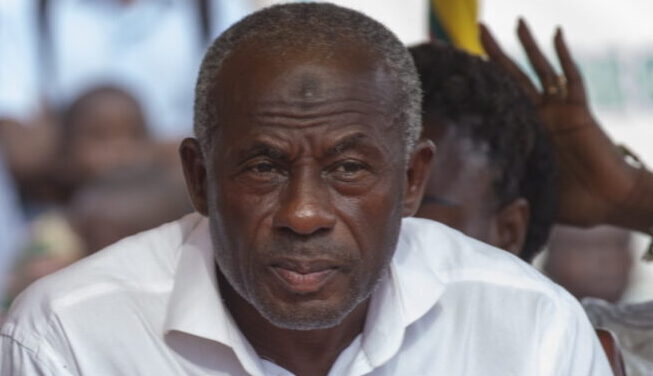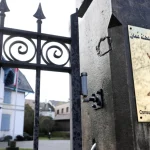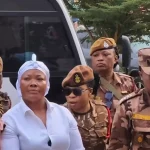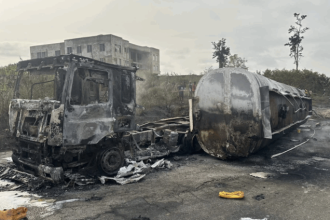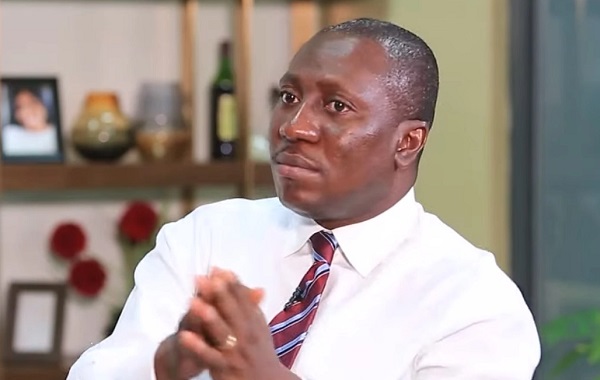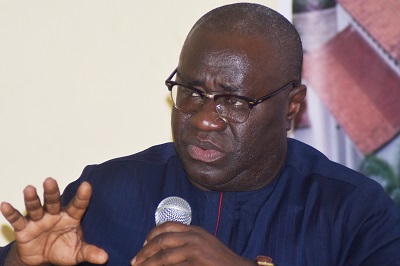The trial of former Water Resources, Works, and Housing Minister, Collins Dauda and four others accused of causing financial loss to the state over the Saglemi housing project has been adjourned to 4 April.
The full trial of the five accused persons is expected to commence at the next hearing.
This was after the parties agreed on the guidelines, processes to be filed, and witnesses it intends calling for the trial at the Case Management Conference (CMC), which ended on Wednesday, 2 March 2022.
All five accused persons were in court.
Why Collins Dauda and the others are in court
A former Minister of Water Resources, Works, and Housing Alhaji Collins Dauda and four others were dragged to court for causing financial loss to the state over the Saglemi Affordable Housing project.
The four others are Alhaji Dauda’s successor, Kwaku Agyeman-Mensah; the Chief Director at the Ministry, Alhaji Ziblim Yakubu; the Executive Chairman of Construtora OAS Ghana Limited, Andrew Clocanas; and a Director of Ridge Management Solutions DWC-LLC (RMS), Nouvi Tetteh Angelo.
OAS Ghana Limited was the company that executed the project, and RMA was the Engineering, Procurement, and Construction (EPC) subcontractor.
Together, they face 52 charges, including intentionally misapplying $200 million of state funds by paying for 1,412 affordable housing units at Saglemi instead of 5,000 units.
They are also facing charges of intentionally misapplying public property, contrary to Section 1 (2) of the Public Property Protection Act, 1977 (SMCD 140); issuing false certificates, contrary to Government Contracts (Protection) Act, 1979 (AFRCD 58), and dishonestly causing loss to public property.
Court documents showed only 668 housing units were completed after the contractor of the deal received over $179 million.
But the accused persons have all pleaded not guilty and are currently on bail.
Facts of the suit
In August 2012, the then President, John Dramani Mahama, granted executive approval to the Housing Ministry to construct 5,000 affordable housing units, known as the Saglemi Affordable Housing Project.
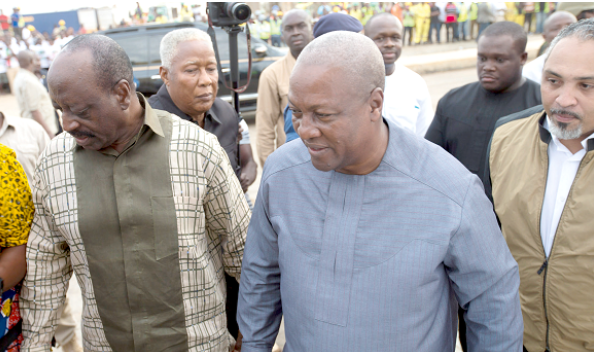
The housing units, to be executed by Construtora OAS Ltd, were to be sold to workers through mortgage arrangements provided by the then Ghana Home Loans Company.
The project was funded by Credit Suisse following parliamentary approval.
A facility agreement was signed on 4 January 2013 to release $200 million to fund the construction of the 5,000 housing units.
On that same day (4 January 2013), the then Housing Minister Alhaji Dauda is said to have signed the EPC agreement with Construtora OAS, represented by Clocanas, the fourth accused in the case.
The prosecutor said the project was to be executed in four phases on 2,172 acres of land at a contract price of $200 million, including consultancy services.
An Escrow Management Agreement, a condition precedent to the facility’s release to the borrower, was also signed under the facility and the EPC agreements.
This agreement was between the Finance Ministry (borrower), the MWRWH (account holder), the Bank of Ghana (account holding bank) and Construtora OAS (contractor).
“The purpose of this agreement was to ensure that the $200 million facility would be properly applied towards the development of the 5,000 housing units,” the Attorney General’s lawyer said.
Per the agreements, payments were to be effected only when specific works had been duly executed, verified and certified by the consultants of the project, Architectural and Engineering Services Ltd (AESL).
However, the EPC agreement provided an advance payment of 40 per cent of the contract price to the contractor within five working days of receipt of the facility in the Escrow Account.
The advance payment was to be applied towards specific works set out in the contract, with the remaining amount paid to the contractor based on the fulfilment of specific milestones.
“The contractor was required under the agreement to set out the details of the achieved project milestones, which had to be verified and certified by the consultants before receiving payment,” the prosecutor said.
The prosecution said on 9 January 2013, Credit Suisse disbursed an amount of $198,450,000, approximately the said $200 million of fees and transaction expenses, into the Escrow Account.
On 27 February that same year, $80million representing 40 per cent of the contract, was transferred to Construtora OAS as advance payment.
The contractor, however, failed to apply the amount towards the purpose for which the payment was made.
On 27 February 2014, the first accused who had assumed office as the new minister, without any parliamentary approval, is said to have reviewed the original EPC and signed the First and Restated Agreement with Construtora OAS, represented by its Executive Chairman, the fourth accused.
In the process, he changed the scope of works and applied all of the $200 million approved by Parliament to construct 5,000 housing units.
The prosecution said this new agreement required the contractor to execute the project in three phases over 1,272 acres whilst the $200 million was now to be applied towards the execution of only the first phase of the project comprising just about 1502 housing units.
This new agreement was contrary to the executive and parliamentary approvals and the Facility and Escrow Management Agreements.
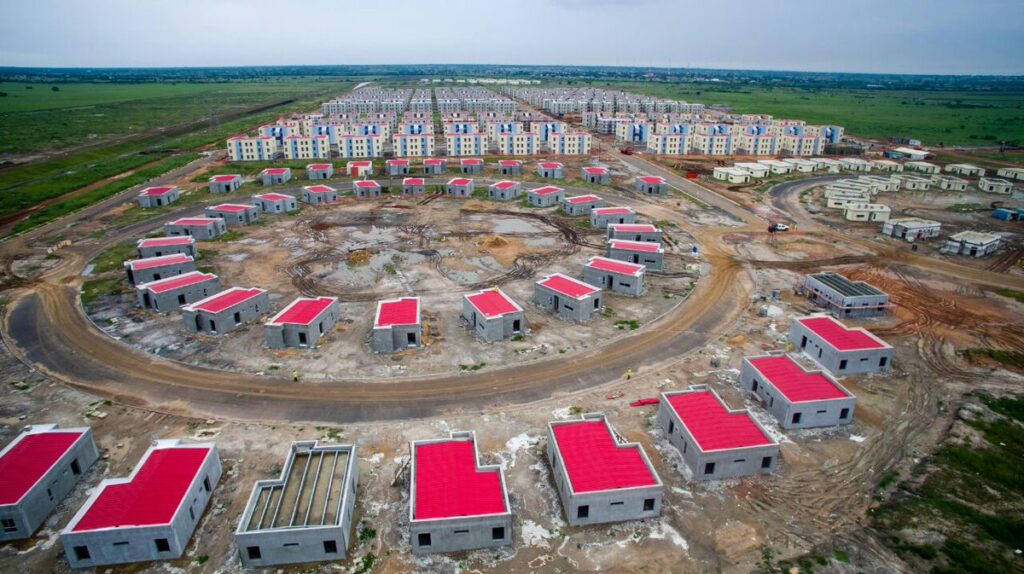
On 15 April 2013, AESL signed a contract with Vito Hugo-Coordenacaoe Gestao De Projectos (VHM), subcontracting their consultancy services under the EPC Agreement to the company for $5,000,000 over a period of 24 months.
This was the amount provided under the EPC Agreement for consultancy services to construct the 5000 housing units.
Under the agreement between AESL and VHM, a maximum of $2,000,000 is to be paid to AESL, while not more than $2,987,750, was paid to VHM for their services. This contract also provided for a 40% advance payment.
In April 2015, while the AESL and the VHM were still providing consultancy services under the contract, Dauda entered another contract for consultancy services with Ridge Management Solutions DWC-LLC (RMS), represented by its director and majority shareholder, the fifth accused, Nouvi Tettey Angelo, for a period of three months at a contract sum on $5.6 million.
According to the prosecution, this was at a time RMS was not registered in Ghana as a company.
Once again, the sector minister was required to make an advance payment of 40% of the contract sum. This contract was completely outside the EPC Agreement.
Investigations revealed that the fifth accused, the majority shareholder of RMS, is also a Director of VHM Ghana Limited.
In August 2016, the second accused entered into yet another consultancy agreement with RMS, this time for what was referred to as ‘marketing implementation services’ for a sum of $2,502,198.00.
Again, the ministry was required to make an advance payment of 40% of the contract sum.
Per these facts, all this while, the AESL and the VHM were purportedly performing the same consultancy services for the project, their consultancy agreements having been extended at various times by the second and third accused persons.
On 21 December, 2016, the third accused, Alhaji Ziblim Yakubu, reviewed the First and Restated Agreement without recourse to Parliament and signed the Second and Restated Agreement.
According to the suit, this led to a further reduction in the scope of works to 1,412 housing units at a revised contract price of $181,018,000.00 and extended the completion period of the contract to 31 July, 2017, without any basis.
Between March 2014 and January 2015, an amount of $46,131,153.41 was paid to the contractor, Construtora OAS, whilst $3,386,916.08 was paid to AESL and VHM when no works had been duly executed by the contractor.
These payments were authorized and approved by the first and third accused without any evidence of specific project milestones achieved by the contractor as required under the EPC Agreement.
Furthermore, according to the Attorney General, there was no justification of the appropriate use of the advance payment of $80 million earlier made.
Between June 2015 and January 2017, a further amount of $54,066,768.16 was paid to the project’s contractor when no works had been duly executed. This time too, there were no milestone reports supporting the payments.
Nonetheless, the second and third accused persons ordered for the payments to be made.
Further payments were also made to the three consultants, AESL, VHM and RMS, far in excess of the $5,000,000 stated as consultancy fees in the original EPC Agreement without any evidence of work they had done.
The prosecution said there were no verification and certification of actual work done by the contractor as required under the EPC Agreement.
Even though a total amount of $196,428,891.66 has been spent on the Saglemi Affordable Housing Project, with the contractor having been paid $179,904,757.78, investigations revealed that the cost of works executed on the site, including consultancy services, is about $64,982,900.77.
Only 651.75 acres of land out of 2,172 acres of land made available by the sector ministry to the contractor for the project has been developed.
Investigations further revealed that only 668 housing units were completed by the contractor. These houses, the prosecution explained, are, however, not habitable.
Not a single house under the project has been sold, and the facility remains unpaid, resulting in huge financial loss to the state.


